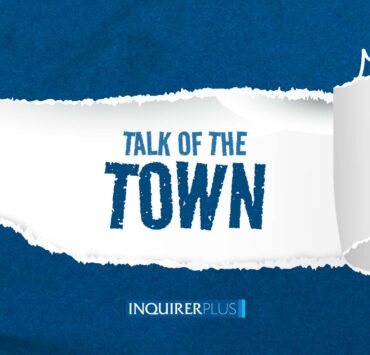When ‘nepo babies’ flaunt wealth

Rain lashes the streets, traffic stalls, and floodwater creeps into tricycles. A nurse in slippers clutches her lunchbox, her phone flashing a reel: a vlogger with a Chanel bag, a private jet, a “quick Paris run.” My daughter, a health professional who spends her days with families bargaining over hospital bills, saw that post over lunch and felt sick. I did, too. It is not just bad taste—it shows a system that lets public money build private spectacle while taxpayers wade through floods. That is why the rage over “nepo babies”—the children of the powerful flaunting wealth online—burns so hot.
It is not envy, but justice at stake. Malacañang itself flagged a “disturbing” pattern: 15 contractors cornered one in five flood control projects worth ₱100 billion between 2022 and 2025. Newsrooms exposed ghost projects. Citizens compared receipts with reels. The dissonance was glaring: apartment tours and private planes versus families pushing tricycles through murky water.
Public outrage needs a face, and nepo influencers became lightning rods—mocked as “Disney princesses” or “Scholar ng Bayan Pro Max.” One flaunted a Fendi jacket in Paris, another posed with a luxury car from her father, and another boasted of a ₱700,000 dinner bill while nearby towns mopped sludge. Republic Act 6713 reminds officials and their families to live modestly. The real insult isn’t poverty—it’s the loss of proportion. Flaunting luxury while projects vanish betrays those who paid for them.
Kabataan Partylist Rep. Renee Louise Co recently called it “painful,” noting how dynasties’ children live in comfort while ordinary youth struggle in underfunded universities and overcrowded classrooms. Her words ring true: privilege gets diplomas abroad, while true scholars of the nation squeeze into cramped rooms, brave floods, and study under leaking roofs. Her warning is visible on campuses themselves—Mindanao State University’s IDS Mega Building used while unfinished, UP Cebu’s College of Science built in installments, leaving students crammed into temporary rooms. These aren’t just lapses; they are broken promises. Education, which should be the great equalizer, has become a great divider.
Former Pasig mayoral candidate and contractor Sarah Discaya admitted in a Senate hearing that her family owns 28 luxury cars—“my kids use them all the time,” she said—amid reports that her firms cornered billions in flood control contracts. Legitimate or not, the optics are brutal: four children with fleets of luxury cars while millions of students can’t even afford a jeepney ride to class.
This is more than personal flaunting—it’s systemic rot. Rigged bidding has become routine. Underfunded firms win big contracts. “Completed” projects exist only in reports. Kickbacks matter more than quality and public safety. Lifestyle checks and Senate hearings must not remain seasonal headlines. We need public dashboards with budgets, photos, and audit notes in plain language. Whistleblowers must be safe and enabled. Complaints must not die in hotlines. Transparency is not a dream; it is a duty.
The way forward requires clear standards. Republic Act 6713 demands modest lives, but enforcement is weak. Agencies should require disclosure of family ties in contracts, bar relatives of officials from quick-turn deals, and blacklist firms that dodge hearings. Regulators must track luxury spending that outpaces declared income.
But rules aren’t enough. Values must be formed early and lived daily. In schools, we ask future teachers to reject bribes, log irregularities, and act with honesty even when unseen. That habit should extend to students and families with power. There are good examples: a mayor’s son quietly funding a bridge, a governor’s daughter returning a luxury bag from a supplier, a young congressman trapped a contractor mid-bribe. These should be norms, not rare exceptions. Cynicism needs antidotes—ordinary decency made visible.
In the end, the anger over nepo babies is not a finish line but a flare. It warns that corruption seeps into family, business, and government alike. It also invites something simple but hard: private honesty. Before posting or purchasing, ask: Is this proportionate? Who pays for this? Would it stand if the cameras were off? Flood control is not only engineering—it is ethics. Contracts will end, posts will vanish, floods will recede. What will matter is whether privilege is carried lightly and spent for the common good.
—————-
Herman M. Lagon describes himself as a “student of and for life” who, like many others, aspires to a world grounded in social justice and the pursuit of happiness.

















